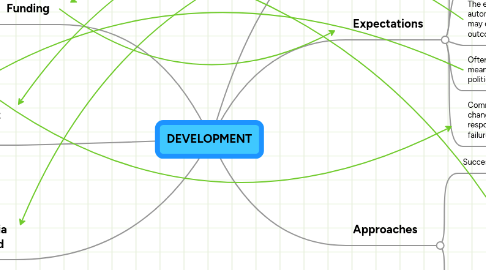DEVELOPMENT
por Jaye Mackay


1. Funding
1.1. Research methods for assessing outcomes are frequently based on cultural biases, often Western
1.2. Criteria for administering funding are often based on outcome measurements which are difficult to judge for cultural projects
1.3. Donor involvement may bring unwanted political affiliations and expectations
1.4. Funding is increasingly coming from NGO's as governments respond to global financial pressures
2. Community Media in the Third World
2.1. Absence of a robust civil society complicates establishment of community media programs
2.2. Commercialization of broadcasting used in some countries to generate income for government, eliminating spectrum use for community groups
2.3. Absence of cultural phenomenon of volunteerism complicates running of media projects
2.4. Government takeover of community media for its own purposes may lead to further subjugation of citizens
3. Community Media in the First World
3.1. Techology, media and culture must be considered in First World cultures
3.2. Because spectrum is commercial in most First World countries, community media is primarily intended to be non-profit, therefore no requirements exist for funding or community participation
4. Expectations
4.1. Can be misleading; community can take different forms in different places
4.2. Success/failure can be measured based upon immediate behavioral changes instead of long-term impact on community
4.3. The expectation that social change will automatically follow community media projects may doom projects to the perception of failed outcomes
4.4. Often assume civil society is a means to achieve a positive political end
4.5. Community media projects based on social change imperatives risk can deflect the state's responsibilities and create an environment of failure
5. Approaches
5.1. Successful Approaches
5.1.1. Partcipatory Communication Approach - emphasizes process over product, empowerment over development
5.1.1.1. Participatory Communication approaches are considered successful when they have been "appropriated" by the community
5.1.1.2. Participatory approaches are characterized by high levels of community involvement and organization
5.1.1.3. Participatory approaches seek bottom-up solutions instead of general macro policies
5.2. Failed Approaches
5.2.1. Media Effects Model - suggested media could "effect" or guide people's thinking directly
5.2.2. Innovation Model - technology-centered model promoted technological communications infrastructure
5.2.3. Modernization Model - promoted universal drive toward industrialization and urbanization
